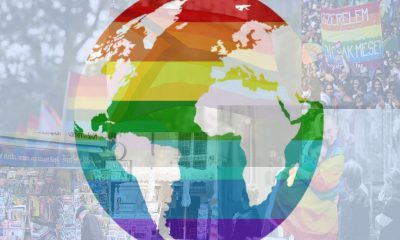Europe
Italian senators thwart bill to make anti-LGBTQ violence a hate crime
Advocacy group will hold protests across the country
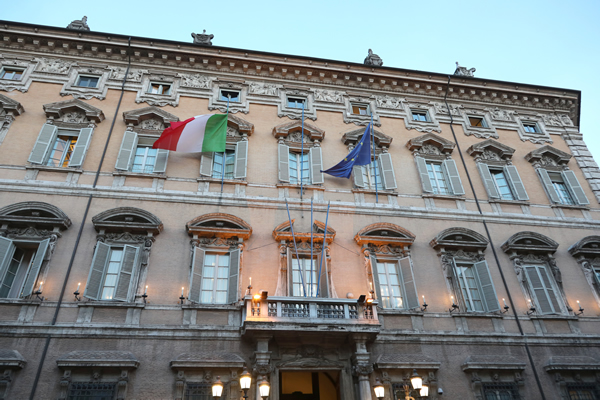
ROME — The Italian Senate on Wednesday blocked a bill that would have classified anti-LGBTQ violence as a hate crime in the country.
Senators by a 154-131 vote margin thwarted the measure that would have also classified violence against women and people with disabilities as a hate crime. The Italian Chamber of Deputies previously approved the bill, despite opposition from the Vatican and center-right political parties.
Arcigay, an Italian LGBTQ rights group, has announced it will hold a series of protests across the country on Friday.
“Now is the time for anger,” said Arcigay General Secretary Gabriele Piazzoni in a press release. “Yesterday’s vote will return like a curse on this political class: We will no longer be satisfied.”
https://t.co/tus5tmDTm1 OMOTRANSFOBIA, LE PIAZZE SI MOBILITANO CONTRO L’AFFOSSAMENTO DEL DDL. STASERA A CUNEO, VICENZA, MILANO, ROMA, VARESE. DOMANI BRESCIA, SABATO FIRENZE, PESARO, PADOVA, MONZA, MANTOVA E PALERMO.Bologna, 28 ottobre 2021 – A seguito della votazione avvenuta … pic.twitter.com/abcVHhTBn5
— Arcigay (@Arcigay) October 28, 2021
ILGA-Europe Advocacy Director Katrin Hugendubel also condemned the vote.
“It is sad and extremely worrying to see the Italian Senate saying no to better protection against hate for women, LGBTI people and disabled people,” said Hugendubel in a tweet. “Have you asked yourselves what signal that sends to haters and more importantly to the concerned communities?”
It is sad and extremely worrying to see the Italian Senate saying no to better protection against hate for women, LGBTI people and disabled people. Have you asked yourselves what signal that sends to haters and more importantly to the concerned communities? https://t.co/dr2s3QT8dO
— Katrin Hugendubel (@khugendubel) October 28, 2021

Pope Francis died on Monday at his official residence at the Vatican. He was 88.
Cardinal Kevin Farrell, the Vatican camerlengo, said Francis passed away at Casa Santa Marta at 7:35 a.m. local time (1:35 a.m. ET.)
“His entire life was dedicated to the service of the Lord and of his church,” said Farrell. “He taught us to live the values of the Gospel with fidelity, courage, and universal love, especially in favor of the poorest and most marginalized. With immense gratitude for his example as a true disciple of the Lord Jesus, we commend the soul of Pope Francis to the infinite merciful love of the one and triune God.”
Francis, a Jesuit who was previously known as Jorge Mario Bergoglio, was born in Buenos Aires to Italian immigrant parents in 1936. He became archbishop of the Argentine capital in 1998.

Pope John Paul II in 2001 appointed him cardinal. The College of Cardinals in 2013 elected Francis to succeed Pope Benedict XVI after he resigned.
Francis vehemently opposed Argentina’s marriage equality law that then-President Cristina Fernández de Kirchner signed in 2010. Francis as pope backed civil unions for gays and lesbians and in 2023 said priests can bless same-sex couples.
Francis in 2023 said laws that criminalize homosexuality are “unjust.” He appointed Robert McElroy, an LGBTQ+-friendly cardinal from San Diego, as the new archbishop of Washington.
The pontiff in 2015 met with a group of gay, transgender, and HIV-positive prisoners in the Italian city of Naples. A Vatican charity in 2020 gave money to a group of trans sex workers in Italy who were struggling to survive during the COVID-19 pandemic.
Francis last October met with a group of trans and intersex Catholics and LGBTQ+ allies at the Vatican. GLAAD President Sarah Kate Ellis and Juan Carlos Cruz, a gay Chilean man who is a clergy sex abuse survivor, are among those who also met with Francis during his papacy.
Church teachings on homosexuality and gender identity, however, did not change under his papacy.
“From the early months of his papacy when he uttered the now-iconic ‘Who am I to judge?’ in response to a question about accepting gay priests, through numerous affirming pastoral messages to individual LGBTQ+ people, to his support for civil unions, and his condemnation of criminalization laws, Pope Francis has changed the church irreversibly by allowing people to see how their Catholic faith requires acceptance and equality,” said Francis DeBernardo, executive director of New Ways Ministry, a Mount Rainier, Md., based LGBTQ+ Catholic advocacy organization, in a statement.
DignityUSA Executive Director Marianne Duddy-Burke met Francis in 2023.
The group in a statement acknowledged the pontiff’s “legacy on LGBTQ+ issues is complicated,” noting “even with the recognition of so many positive words and actions, church teachings and even some recent Vatican documents remain problematic.” DignityUSA President Meli Barber nevertheless praised Francis.
“We also recognize that Pope Francis has raised awareness of LGBTQ+ issues in our church in truly unprecedented ways,” said Barber. “He spoke about us using our own terms and made a point of being seen meeting with LGBTQ+ people frequently. This sent a message of recognition and inclusion we never experienced from the Vatican before.”
Pope’s legacy is ‘mixed’
Activists in Argentina and around the world also mourned Francis.
“We mourn his death and embrace the people who are suffering today because of his passing,” LGBT Federation of Argentina President María Rachid told the Washington Blade.
Dindi Tan, national president of LGBT Pilipinas in the Philippines, on her Facebook page wrote Francis “was unafraid to challenge age-old dogmas and to ‘rattle’ the cage.” Pedro Julio Serrano, president of the Puerto Rico LGBTQ+ Federation, said Francis was an “ally of equity, humanity and dignity of LGBTQ+ people, not only during his pontificate, but throughout his life.”
Peter Tatchell, a long-time LGBTQ+ activist from the U.K. who is director of the Peter Tatchell Foundation, in a statement acknowledged Francis’s “more compassionate tone towards sexual minorities” that includes blessings for same-sex couples. Tatchell, nevertheless, pointed out the Vatican under Francis’s papacy continued to oppose marriage equality and trans rights.
“The Catholic Church remains a force for discrimination and suffering,” said Tatchell. “Under his leadership, the Vatican continued to oppose same-sex marriage and trans rights. Catholic bishops lobbied against the decriminalization of homosexuality in many parts of the world. The Vatican still upholds the homophobic edicts of the Catechism, which denounces the sexual expression of same-sex love as a ‘grave depravity’ and ‘intrinsically disordered.’ Francis’s legacy is, therefore, a mixed one — offering some progress but leaving deep-rooted inequalities largely intact.”
Vance met with Francis on Easter Sunday
Francis earlier this year spent more than a month in a Rome hospital after he developed double pneumonia.

He met with Vice President JD Vance at the Vatican on Easter Sunday, hours before his death.
The pope had previously criticized the Trump-Vance administration over its immigration policies.
“I just learned of the passing of Pope Francis,” said Vance on X after the Vatican announced Francis’s death. “My heart goes out to the millions of Christians all over the world who loved him.”
I just learned of the passing of Pope Francis. My heart goes out to the millions of Christians all over the world who loved him.
I was happy to see him yesterday, though he was obviously very ill. But I’ll always remember him for the below homily he gave in the very early days…
— JD Vance (@JDVance) April 21, 2025
Argentine President Javier Milei, who previously criticized Francis, mourned him in a statement he posted to X. Milei also announced Argentina will observe seven days of mourning.
“It is with profound sorrow that I learned this sad morning that Pope Francis, Jorge Bergoglio, passed away today and is now resting in peace,” said Milei. “Despite differences that seem minor today, having been able to know him in his goodness and wisdom was a true honor for me.”
“As president, as an Argentine, and, fundamentally, as a man of faith, I bid farewell to the Holy Father and stand with all of us who meet today with this sad news,” he added.
ADIÓS
Con profundo dolor me entero esta triste mañana que el Papa Francisco, Jorge Bergoglio, falleció hoy y ya se encuentra descansando en paz. A pesar de diferencias que hoy resultan menores, haber podido conocerlo en su bondad y sabiduría fue un verdadero honor para mí.… pic.twitter.com/3dPPFoNWBr— Javier Milei (@JMilei) April 21, 2025
The Vatican
Vatican approves Italian guidelines for gay priests
Seminary candidates cannot be denied because of sexual orientation, must remain celibate

The Vatican has approved new guidelines that opens the door for gay men in Italy to become priests.
The New York Times on Jan. 10 reported the Vatican approved the guidelines the Italian Bishop’s Conference adopted last November.
The guidelines specifically stipulate seminaries cannot reject applicants simply because of their sexual orientation, as long as they remain celibate. They will remain in place for what the Times described as a “3-year trial period.”
“This development is a big step forward,” said Francis DeBernardo, executive director of New Ways Ministry, a Maryland-based LGBTQ+ Catholic organization, in a press release. “It clarifies previous ambiguous statements about gay seminary candidates, which viewed them with suspicion. This ambiguity caused lots of fear and discrimination in the church, way beyond the arena of seminary admissions.”
“This new clarification treats gay candidates in the same way that heterosexual candidates are treated,” added DeBernardo. “That type of equal treatment is what the church should be aiming for in regards to all LGBTQ+ issues.”
The Vatican in 2016 reaffirmed gay men becoming priests.
“The church, while profoundly respecting the persons in question, cannot admit to the seminary or to holy orders those who practice homosexuality, present deep-seated homosexual tendencies or support the so-called ‘gay culture,’” reads a document the Vatican’s Congregation for the Clergy released that Pope Francis approved.
The document essentially reaffirmed the Vatican’s 2005 position on the issue. (Benedict XVI was pope at the time.)
The Vatican’s tone towards LGBTQ+ and intersex issues has softened since Francis became pope in 2013.
Francis publicly backs civil unions for same-sex couples, and has described laws that criminalize homosexuality as “unjust.” Francis in 2023 said priests can bless same-sex couples.
The pontiff earlier this month named Cardinal Robert McElroy of San Diego, who DeBernardo notes has made “strong positive statements regarding LGBTQ+ issues,” as the new archbishop of Washington. President-elect Donald Trump has nominated Brian Burch, the president and co-founder of CatholicVote, an anti-LGBTQ+ Catholic group, to become the next U.S. ambassador to the Vatican.
Francis during a 2023 interview with an Argentine newspaper described gender ideology as “one of the most dangerous ideological colonizations” in the world because “it blurs differences and the value of men and women.” A declaration the Vatican’s Dicastery for the Doctrine of the Faith released last March with Francis’s approval condemned gender-affirming surgeries and “gender theory.”
Liechtenstein
Liechtenstein marriage equality law takes effect
US embassy praises ‘countless individuals who worked tirelessly for equality’
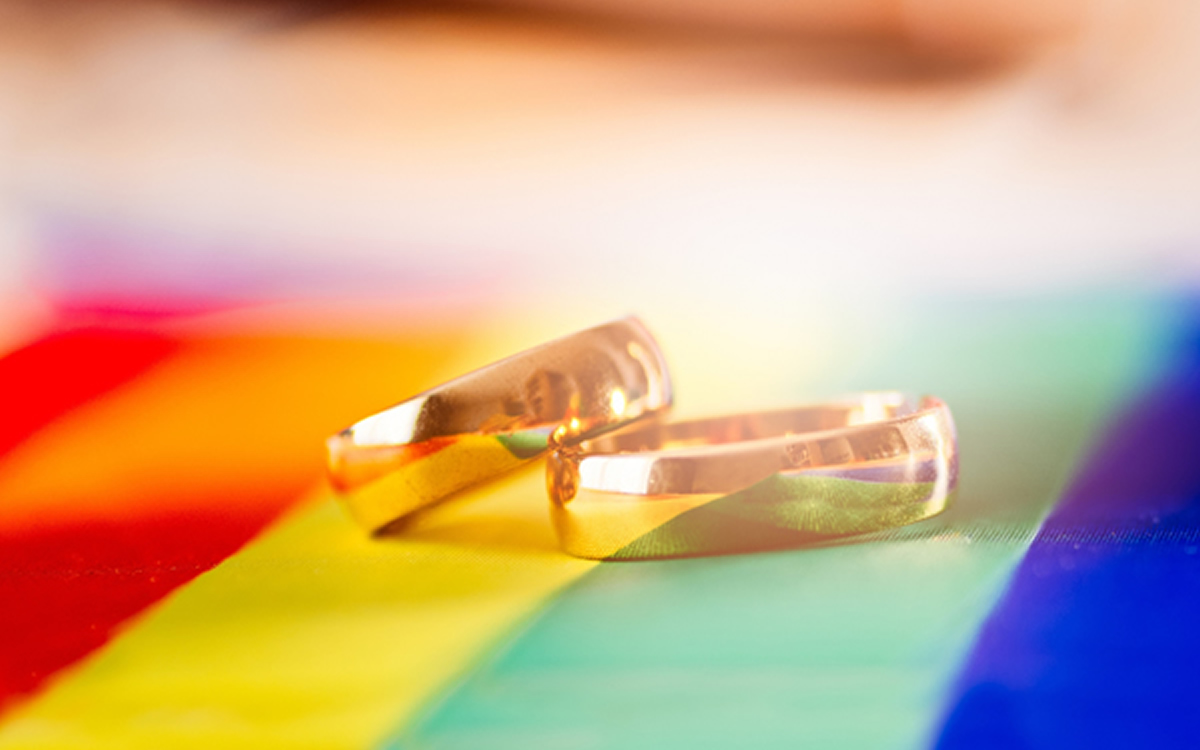
A law that extends marriage rights to same-sex couples in Liechtenstein took effect on Wednesday.
Lawmakers in the small European country that borders Switzerland and Austria approved a marriage equality bill in May 2024. Liechtenstein is the last country in which German is the primary language to extend marriage rights to same-sex couples.
Same-sex couples have been able to legally marry in Switzerland and Austria since 2022 and 2019 respectively. Same-sex marriage has been legal in Germany since 2017.
“This milestone is a testament to the dedication and advocacy of countless individuals who worked tirelessly for equality,” said the U.S. Embassy in Bern, the Swiss capital, in an X post.
Congratulations to 🇱🇮 on the enactment of same-sex marriage, effective as of today! This milestone is a testament to the dedication and advocacy of countless individuals who worked tirelessly for equality. Wishing everyone a joyful and inclusive start to the New Year! 🌈✨ pic.twitter.com/ZbG5Vd4tOf
— U.S. Embassy Bern (@USEmbassyBern) January 1, 2025
The Washington Blade in 2022 interviewed Scott Miller, the openly gay U.S. ambassador to Switzerland and Liechtenstein. He was among those who spoke at Liechtenstein’s first-ever Pride event that took place that year.
“It will be a discussion that I think activists will have to work on a lot,” he said, referring to marriage equality efforts in Liechtenstein. “I will support (them) in any way I can.”
The Vatican
LGBTQ+ pilgrimage to take place during Catholic Church’s 2025 Jubilee
Event not ‘sponsored or organized by’ the Vatican

A group of LGBTQ+ Christians in Italy has said the Vatican has approved its request to make a pilgrimage during the Catholic Church’s 2025 Jubilee.
The National Catholic Register on Dec. 11 reported La Tenda di Gionata (Jonathan’s Tent) — an Italian Christian group that helps “LGBT people and their families feel welcome in their church” — asked members to “save the date” of Sept. 6, 2025, and invited “all associations and groups dedicated to supporting LGBT+ individuals and their families to join us as we officially cross the Holy Door of the Jubilee at St. Peter’s Basilica” at 3 p.m.
The National Catholic Register notes the pilgrims have also been invited to a Mass at the Jesuit Church of the Gesù that Msgr. Francesco Savino, vice president of the Italian Episcopal Conference, will celebrate.
Church Jubilees take place every 25 years.
Jubilee 2025 officially begins on Christmas Eve.
Jubilee spokesperson Agnese Palmucci confirmed to the National Catholic Register that La Tenda di Gionata’s proposed pilgrimage has been “included in the general calendar as a pilgrimage, along with all the other pilgrimages that other dioceses will make,” but noted it is “not a Jubilee event sponsored or organized by us.”
“It is a pilgrimage organized by this association which, like the other dioceses, bodies and associations, will make the pilgrimage as they wish,” said Palmucci.
Francis DeBernardo, executive director of New Ways Ministry, a Maryland-based LGBTQ+ Catholic organization, on Dec. 10 noted he traveled to Rome in 2000, the last Jubilee year, and spoke at the first WorldPride that took place that summer.
“One of the things I remember most about that time was the anger expressed by the Vatican and the pope himself that World Pride was taking place in Rome during the Jubilee year,” wrote DeBernardo on New Ways Ministry’s website. “Perhaps particularly galling to John Paul II was that the pride event was taking place in the first week of July, which was the same week that pilgrims from the pope’s native Poland were scheduled to flood the city. And indeed, everywhere you looked you saw people with bright red neckerchiefs, a symbol of Polish heritage.”
DeBenardo noted the “mood in” Rome “was incredibly tense.”
“Vatican anti-gay rhetoric had fueled anti-gay sentiment beyond the Catholic Church, and many right-wing Italian political groups were denouncing World Pride, which was to culminate in a march from the Porta San Paolo to the Colosseum,” he wrote. “Anti-gay messages were plastered all over the city buildings. One message in particular remains strong in my memory: ‘Gay al Colosseo? Sì, con i leoni.’ (Translation: ‘Gays at the Colosseum? Yes, with lions.’)”
DeBenardo wrote the inclusion of an LGBTQ+ pilgrimage during the 2025 Jubilee “touched my heart.”
“While 2025’s event may seem like a small step, when compared with how the Vatican reacted to the presence of gay people in Rome during 2000, we can see what a sea change has taken place in terms of responding to LGBTQ+ people,” he said.
The Vatican’s tone towards LGBTQ+ and intersex issues has softened since Pope Francis assumed the papacy in 2013.
Francis publicly backs civil unions for same-sex couples, and has described laws that criminalize homosexuality as “unjust.”
He met with two African LGBTQ activists — Clare Byarugaba of Chapter Four Uganda and Rightify Ghana Director Ebenezer Peegah — at the Vatican on Aug. 14. Sister Jeannine Gramick, one of the co-founders of New Ways Ministry, organized a meeting between Francis and a group of transgender and intersex Catholics and LGBTQ+ allies that took place at the pontiff’s official residence on Oct. 12.
Francis during a 2023 interview with an Argentine newspaper described gender ideology as “one of the most dangerous ideological colonizations” in the world because “it blurs differences and the value of men and women.” A declaration the Vatican’s Dicastery for the Doctrine of the Faith released in March with Francis’s approval condemned gender-affirming surgeries and “gender theory.”
Europe
Andorra’s prime minister comes out as gay
Xavier Espot Zamora spoke with country’s public broadcaster
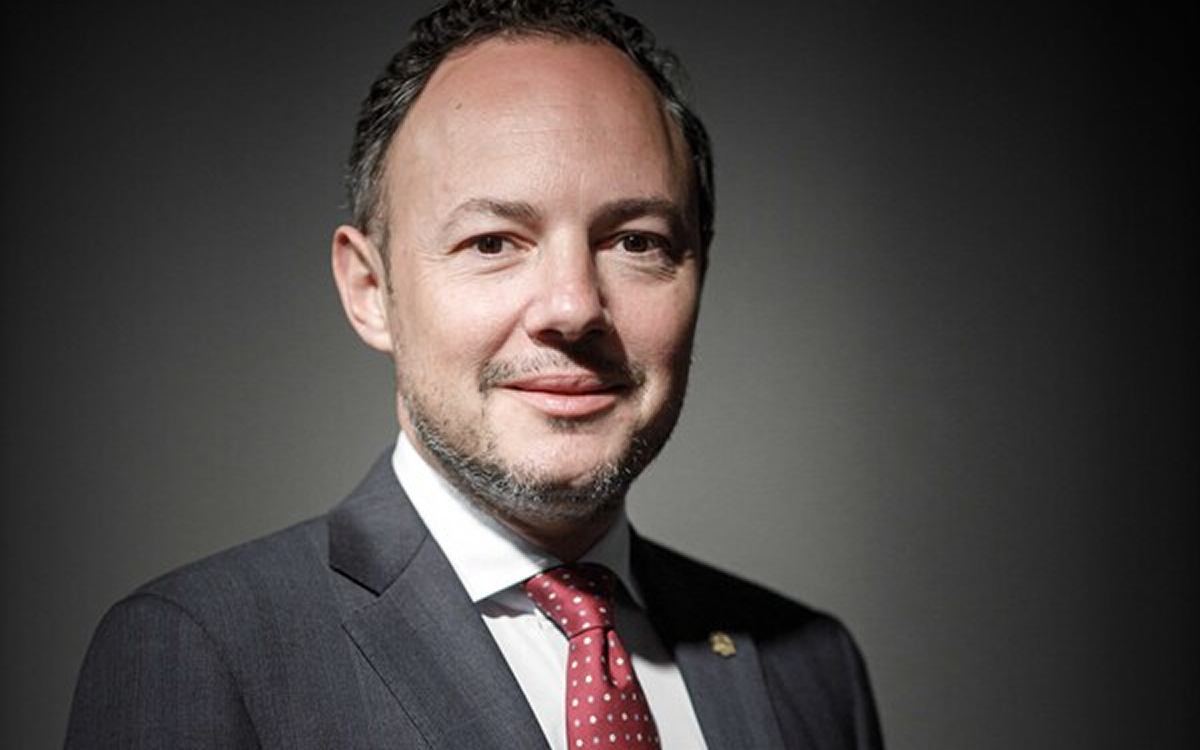
ANDORRA LA VELLA, Andorra — Andorran Prime Minister Xavier Espot Zamora has come out as gay.
“I’m gay. I’ve never hid it,” he said during an interview with Radio and Television of Andorra, the country’s public broadcaster, on Monday. “Now, if I’m not asked I don’t have to say it, in the sense that it doesn’t define the entirety of who I am and even less my personal politics, but at the same time I think it shouldn’t be a problem to express it. And if this helps many children, young people or teenagers who are going through a difficult time see that in the end, regardless of their condition or sexual orientation, you can prosper in this country and reach the highest magistracy, then I am happy to express it.”
Andorra is a small country known for its ski areas that is nestled between Spain and France in the Pyrenees.
Espot has been prime minister since 2019. The country’s lawmakers in 2022 extended marriage rights to same-sex couples.
The prime minister is one of a handful of heads of state and government who are openly gay or lesbian.
Latvian President Edgars Rinkēvičs took office in July.
Luxembourgish Prime Minister Xavier Bettel has been in office since 2013, while Ana Brnabić became Serbia’s prime minister in 2017. Irish Prime Minister Leo Varadkar is openly gay.
Deputy Belgian Prime Minister Petra De Sutter is a transgender woman.
Then-Icelandic Prime Minister Jóhanna Sigurðardóttir in 2009 became the world’s first openly LGBTQ+ head of government.
Europe
Rikkie Valerie Kollé named Miss Netherlands 2023: Historic first
Rikkie Valerie Kollé was selected as Miss Netherlands and will represent her country at the 72nd Miss Universe pageant
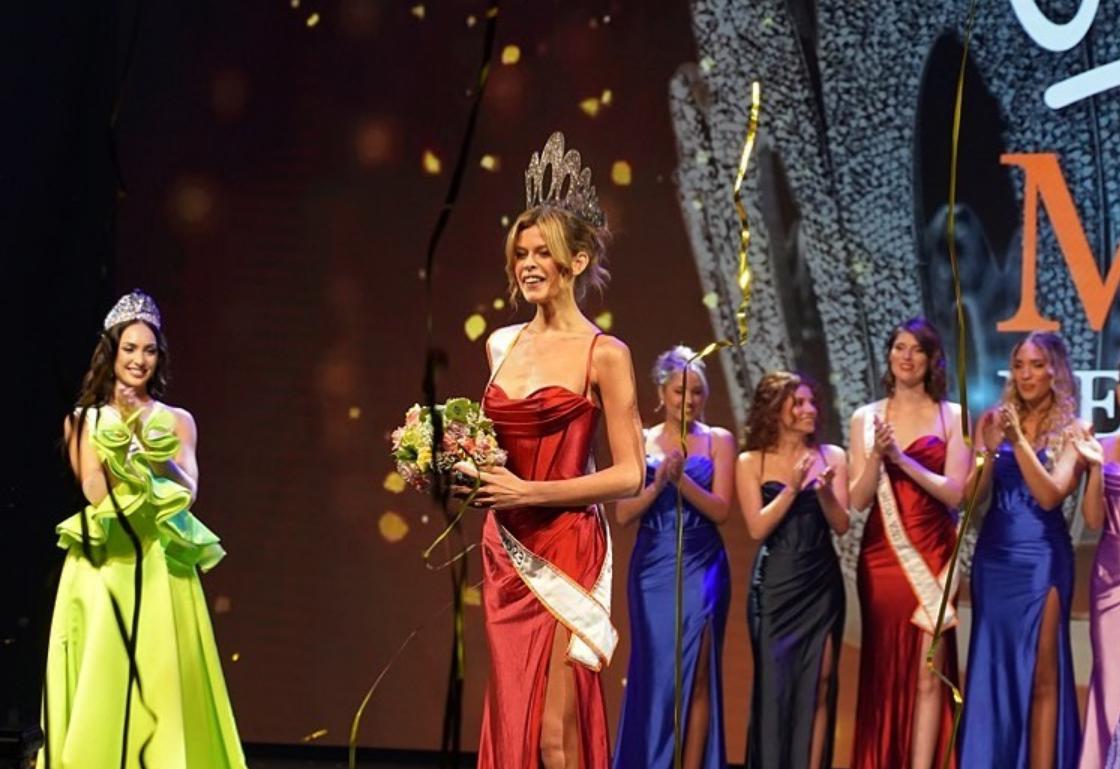
LEUSDEN, Utrecht, the Netherlands – In a historic first for the beauty pageant where the finalist will go on to compete in the Miss Universe pageant, the title and tiara of Miss Netherlands was awarded to a 22-year-old transgender woman on Saturday, July 8 at the AFAS Theater in Leusden.
Rikkie Valerie Kollé was selected as Miss Netherlands and will represent her country at the 72nd Miss Universe pageant set to take place in El Salvador later this year. Kollé, a Dutch-Moluccan model and actress living in Breda succeeds her predecessor, Ona Moody.
In a press release, pageant officials noted that Nathalie Mogbelzada, 26, from Amsterdam, was named first runner-up while Habiba Mostafa and Lou Dirchs were awarded Miss Congeniality and Miss Social Media, respectively.
Reigning Miss Universe R’Bonney Gabriel from the United States attended the glittering event as a special guest.
Kollé will be the second transgender representative at the Miss Universe pageant after Spain’s Angela Ponce who participated in 2018.
NPR reported the 71-year-old competition first began allowing transgender contestants in 2012.
More trans women have been competing in the preliminary pageants in recent years. In 2021, former Miss Nevada Kataluna Enriquez became the first trans contestant in a Miss USA pageant. Trans woman and activist Daniela Arroyo González will compete for this year’s Miss Universe Puerto Rico title next month.
Thai business mogul Anne Jakrajutatip, a trans activist who is also transgender, bought the Miss Universe Organization last year. She has said she’s committed to advancing the organization as an inclusive platform and wants to transform the brand for the next generation.
NPR also noted that Kollé has another chance to make history: If she takes the Miss Universe title in December, she would be the first out trans woman to do so.
Europe
Turkish police detain dozens of Istanbul Pride march participants
Anti-LGBTQ crackdown expected to worsen after president re-elected
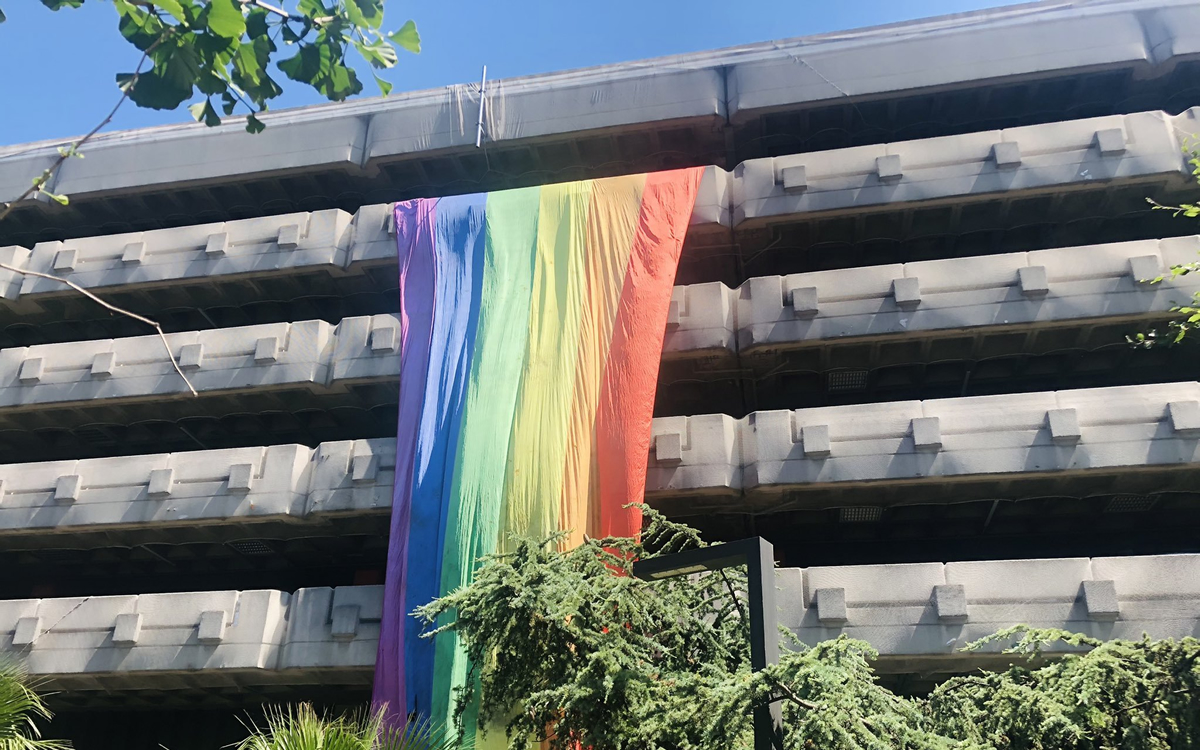
ISTANBUL — Turkish police on Sunday detained dozens of people after they participated in an Istanbul Pride march.
Reuters reported police in riot gear blocked access to the city’s Istiklal Avenue and Taksim Square and limited access to public transportation in the area.
The news agency noted police detained at least 50 people. An activist with whom the Washington Blade spoke on Sunday said police took 60 “of our friends … into custody.”
“Two of the people the police unlawfully took from the streets to take statements are under the age of 18,” said the activist.
Turkish authorities over the last decade have cracked down on LGBTQ+ and intersex activists in the country.
Police in 2015 used tear gas and water cannons against people who were about to participate in an Istanbul Pride march. Authorities in 2017 arrested nearly two dozen people who defied a ban on Pride events in the city.
Police in Ankara, the Turkish capital, on May 10, 2019, arrested 18 students and an academic who participated in a Pride march at the Middle East Technical University. They faced up to three years in prison, but a court in 2021 acquitted them. Police in 2022 violently broke up a Pride parade at the same Ankara university.
The State Department in 2021 criticized Turkey after police once again used tear gas to disperse Istanbul Pride march participants. Security forces last June arrested more than 370 people who tried to participate in another Istanbul Pride march.
The activist with whom the Blade spoke noted police in Izmir, the country’s third largest city, on Sunday detained at least 10 people who participated in a Pride march.
President Recep Tayyip Erdoğan, a former Istanbul mayor who has governed Turkey since 2003, won re-election on May 28. The activist and others across the country say they expect Erdoğan will further restrict on LGBTQ+ and intersex rights.
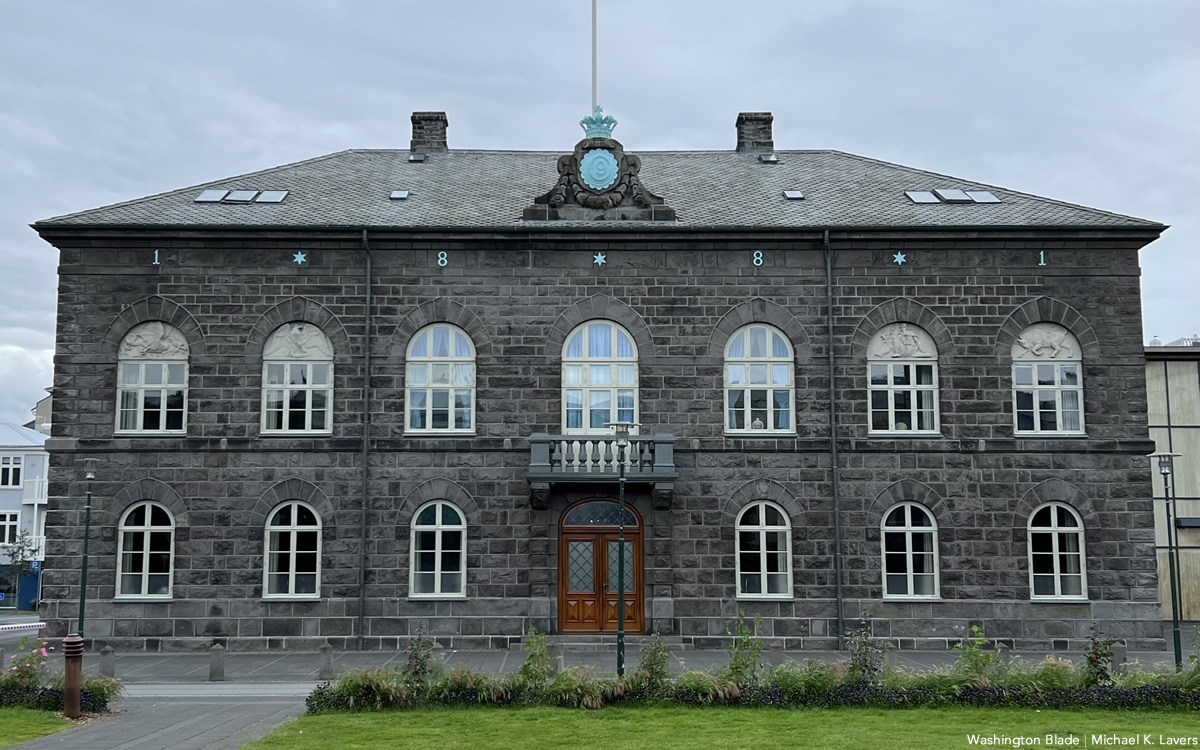
REYKJAVÍK, Iceland — Lawmakers in Iceland on June 9 approved a bill that will ban so-called conversion therapy in the country.
Media reports note 53 members of the Icelandic Parliament voted for the measure, while three MPs abstained. Hanna Katrín Friðriksson, an MP who is a member of the Liberal Reform Party, introduced the bill.
“This is a really important issue for all gay people and a step worth celebrating,” said Samtökin ’78, an Icelandic LGBTQ+ and intersex rights group, after the vote. “There is no cure for being gay and any attempt to do so is violence. It’s so good that the government recognizes it with legislation.”
Malta, Cyprus, Brazil and Ecuador are among the other countries that ban conversion therapy.
Europe
ILGA-Europe: New program for racialized LGBTQ+ communities
The new initiative will be supporting up to 15 organizations’ work on socio-economic justice for racialized LGBTI communities
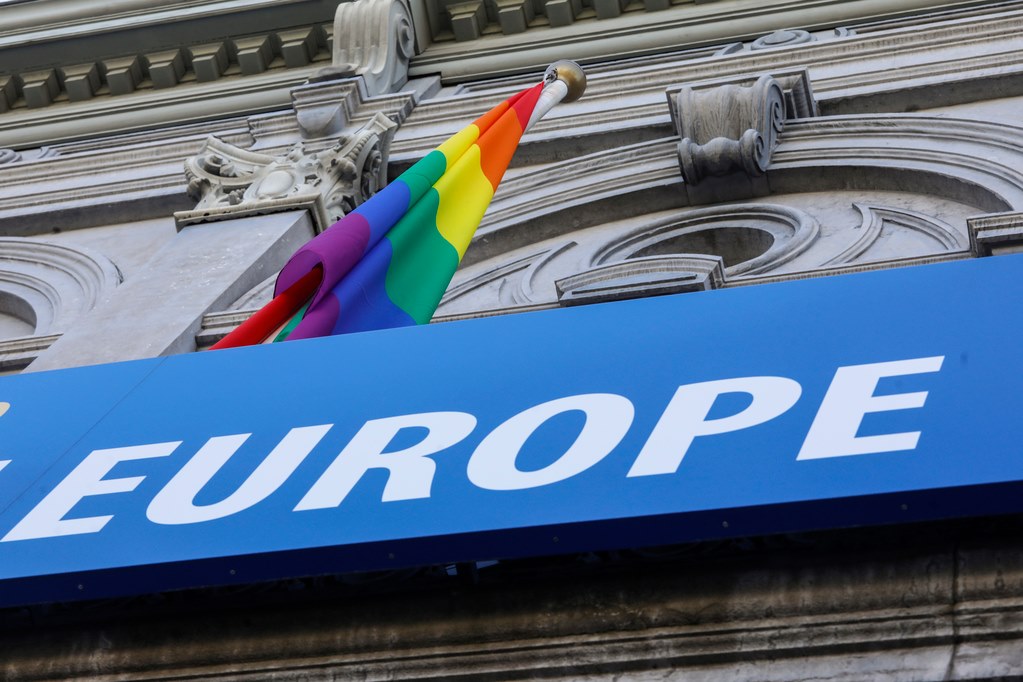
BRUSSELS, Belgium – ILGA-Europe announced a new two part 12-month program focused on the work being done by and for racialized LGBTQ+ communities across Europe this week.
According to the international LGBTQ+ advocacy non-profit, the new initiative will be supporting up to 15 organizations’ work on socio-economic justice for racialized LGBTQ+ communities through a combination of grants and other resources.
The program has two interconnected components:
- Financial support for the implementation of a project (up to 20.000 euro per project), AND
- Learning and networking that will bring grantees together (on-line) on a regular basis to exchange learning, share challenges and solutions, build solidarity and find points for collaboration and inspiration.
The aim of this program is to:
- Bring together a group of up to 15 European LGBTI organizations/groups across Europe that work on addressing the intersectional impact of socio-economic injustice, racialization, racism and supremacy and specific harms affecting the lives of racialized LGBTI communities across Europe.
- Support, strengthen and advance their work on socio-economic justice for racialized LGBTI communities through a combination of grants and regular peer-learning/networking meetings.
ILGA-Europe noted that currently, the LGBTI movement across Europe operates in an increasingly hostile environment that directly affects the lives of LGBTI communities and the work of activists.
This environment is marked by anti-rights opposition, anti-democratic developments, rising unemployment, economic crises, ongoing and brewing geo-political conflicts, deepening structural inequalities, fear-mongering, mounting transphobic, and sexist and racist rhetoric and violence.
In a statement, ILGA-Europe said:
“So many organizations and groups have been doing incredible work and contributing to change, while at the same time being historically excluded from funding. By supporting these groups, we also wish to recognise and acknowledge the specialized knowledge and skills involved in addressing intersectionality. This can mean anything from exposing structural oppressions that shape harm; building and sustaining the resilience of racialized communities; developing and applying anti-racist, feminist and alternative approaches; to working through – and in spite of – institutional violence and trauma.
This programme expresses our commitment to continue our engagement with socio-economic justice and to strengthen our work on anti-racism. We see a great value for the wider movement in making the work of the organizations supported, disseminated and visible. We see an opportunity to bring the learning from this programme to the wider movement, as we believe that solutions and approaches that include a few will pave the way and point to the solutions for many.”
Key information & details:
In selecting proposals, ILGA-Europe will prioritise projects that:
- Demonstrate clear understanding of how the intersection of LGBTI identities, socio-economic injustice and racialisation works in their local contexts
- Present a clear plan for how the envisaged change is going to come about in these contexts
- Seek to establish practices/tools/solutions that can live beyond the project’s lifetime
- Have the potential to enhance the movement’s thinking on anti-racism and working towards socio-economic justice in general and for socio-economic justice for racialised LGBTI communities in particular.
- Respond to the framework, aim, objectives, and areas of work of this call
- Are implemented by LGBTI-run organisations and initiative groups in Europe that have history and practice of working with and for racialised LGBTI communities
Deadline & Timeline:
- Proposals should be submitted using the attached application form and budget template. The last day to submit your application (deadline) is 2 April 2023, Sunday, 23:59 CEST.
- We will review applications, decide on projects to be supported and inform all applicants about the results of the review via the e-mail address provided in the application by 5 May 2023.
- Contracts will be signed with organisations in May 2023. Successful applicants should be available to respond to requests during that period. The project must start on 1 June 2023.
- To submit an application or if you have any questions in the preparation of your project proposal, please contact: [email protected]
Questions?
If you have any questions in the preparation of your project proposal please submit them via e-mail to [email protected]
We will answer all of your questions via e-mail and then publish answers on a dedicated ilga-europe.org website page on 27 February and on 23 March, in order to share the information among all applicants.
Europe
Slovakian Parliament rejects same-sex registration for couples
The legislation did not give equal protections and rights such as marriage or civil unions and needed 76 votes to be passed
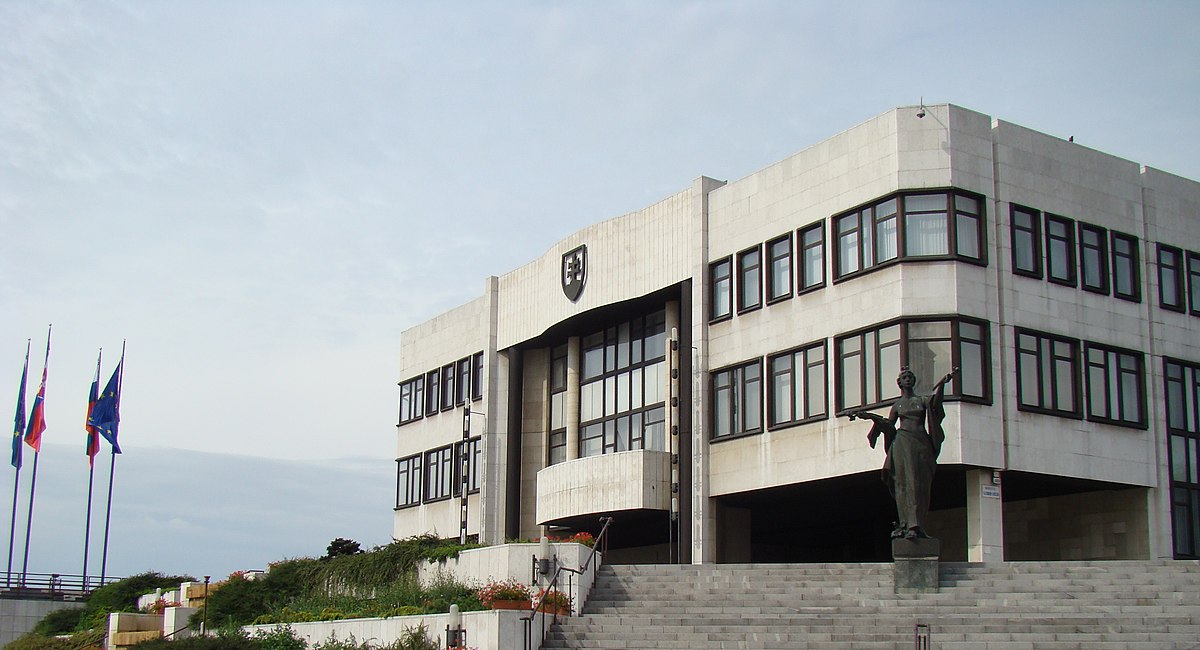
BRATISLAVA, Slovakia – A proposal that would have codified the ability of same-sex couples in Slovakia to register their partnership, which would have granted inheritance rights, decisions regarding medical care, treatments and compensation in the event of death or injury at work, was rejected by the Slovakian Parliament this past week.
The legislation did not give equal protections and rights such as marriage or civil unions and needed 76 votes to be passed. The bill saw 50 parliamentarians vote in favour, 37 politicians vote against, 15 submitted a blank vote, and 31 did not vote at all.
Slovakian President Zuzana Čaputová was critical of the outcome telling various media outlets the legislation was necessary to protect the “safety and acceptance of [our] fellow-citizens.” “We need to act,” she tweeted. “Our society is not threatened by the love of two people of the same sex or their partnership.”
The vote on the legislation occurred a few days after a vigil was held in the Slovakian capital city to honor the two victims killed and a third who was badly wounded in a shooting outside of the Tepláreň bar, a popular LGBTQ+ establishment in the old city, which was also attended by the nation’s president and the European Parliament’s Vice-President.
President Čaputová noted regarding the vote, “Our society is paying for indifference and insensitivity when even such a tragedy does not move a sufficient number of deputies to take the necessary and correct step.”
Opposition to granting rights to same-sex couples as well as opposition to LGBTQ equity in rights in the country is led by the far-right political groups including the Kresťanská únia (Christian Union). Richard Vašečka, a party Member of Parliament told the Standard his party promised before the last elections to protect marriage as a union between a man and a woman.
He added he is afraid that this law is only the start of an “avalanche” that ends with allowing the adoption of children by same-sex couples and punishing people for disagreeing with the LGBTQ agenda.
Vašečka stressed that he respects every person but is convinced that “every child deserves a father and a mother, and it is the best family space for raising children.”
-

 Arts & Entertainment19 hours ago
Arts & Entertainment19 hours ago2025 Best of LGBTQ LA Finalist Voting
-

 Brazil5 days ago
Brazil5 days agoUS lists transgender Brazilian congresswoman’s gender as ‘male’ on visa
-

 opinions4 days ago
opinions4 days agoOver 36,000 Angelenos unite for ‘Fighting the Oligarchy’ rally
-

 Books3 days ago
Books3 days ago‘Pronoun Trouble’ reminds us that punctuation matters
-

 Congress4 days ago
Congress4 days agoEXCLUSIVE: Garcia demands answers on deportation of gay Venezuelan asylum seeker
-

 Theater4 days ago
Theater4 days ago‘The Broadway Cage Match’ ready to rumble at WeHo’s Musical Mondays
-

 Features4 days ago
Features4 days agoNew mayor Chelsea Byers, hopes to make WeHo a model city for others to follow
-

 The Vatican1 day ago
The Vatican1 day agoPope Francis dies at 88
-
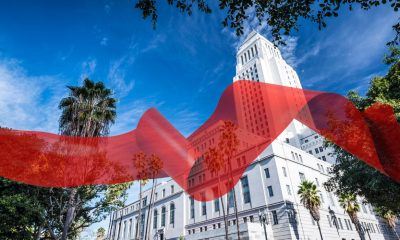
 Local22 hours ago
Local22 hours ago‘Housing Now!’: Advocates plan to wrap City Hall in red tape
-

 Autos1 day ago
Autos1 day agoSporty sedans: BMW 530i xDrive, Mercedes AMG CLA 3

